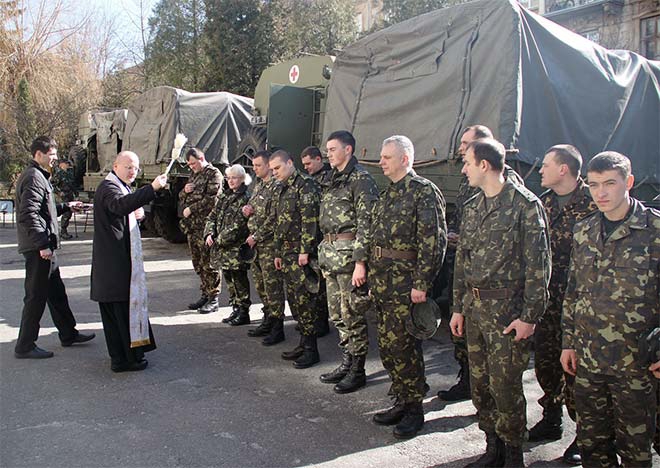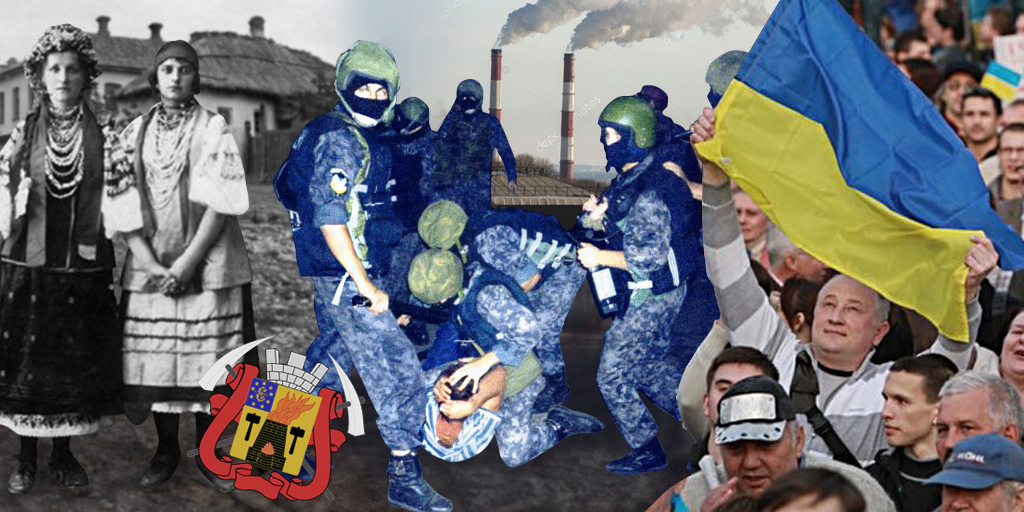Ukraine is not at peace. It is not formally at war, either. This curious state of affairs, engineered by the Kremlin apparatchiks to sidestep international norms and conventions on inter-state warfare, has led to pain and suffering for over a million internally displaced Ukrainian citizens. It has also by design, created a bureaucratic grey zone for some of the most affected people — 126 officially declared by the State Security Service of Ukraine — prisoners of the self-styled Donetsk People’s Republic and prisoners held by the Russian Federation itself in occupied Crimea.
In normal times, insofar as war may be called ‘normal’, the exchange and treatment of prisoners is strictly regulated by the Geneva Convention, the Council of Europe Convention on the Transfer of Sentenced Persons, and other binding international instruments. These documents establish clear guidelines for prisoners held captive by a foreign or hostile power — however, they betray a glaring flaw, one exploited and now made obvious by Russian actions.
The critical failing of all these treaties and conventions is that they rely on an open, diplomatically declared status of war. Despite the Third Geneva Convention, Relative to the Treatment of Prisoners of War explicitly stating that its regulations apply even when one party does not recognize a state of war, it implicitly requires a declaration of war from at least one contracted side.
This, of course, has been the Kremlin’s trick. Ukraine is not at war with the Russian Federation. It does not recognize the legitimacy of the so-called Donetsk People’s Republic ("DNR"), nor the Luhansk People’s Republic ("LNR"). As a result, Ukraine cannot rely on established international norms for prisoner treatment and exchange. While the fact that the "DNR" and "LNR are Kremlin-led puppet warlords and contain a large amount of Russian military forces in their own armed forced is common knowledge, these tricks have allowed Russia to claim innocence and maintain distance from its otherwise binding international commitments.
Imagine that you are a Ukrainian citizen, an activist that lives in occupied Crimea. You agitate for the return of the peninsula to Ukrainian control. You are thus arrested by the Russian Federation, under the laws of the Russian Federation, for your views. In other words, you are a political prisoner. Under the ‘normal’ rules of war set by the Geneva Conventions, you would be returned to Ukraine at the cessation of hostilities. Ukraine could even rely on various other conventions that it, and Russia, are a party to, such as the Council of Europe Convention on the Transfer of Sentenced Persons.
Ukrainian Human Rights Ombudsman Mykhailo Chaplyga recently described Russian underhandedness in the following way: ‘Russia considers Crimea as a territory of the Russian Federation, and they suggested to us that if Ukraine wants to transfer Ukrainian citizens from the closed place in the territory of the Russian Federation to the Ukrainian-controlled territory, then you can use conventions…But once Ukraine will ask for prisoners, Ukrainian citizens, to be transferred to Ukrainian-controlled territory, means that Ukraine recognizes Crimea as a territory of the Russian Federation.
Using the extant international instruments, in other words, would cement and legitimize Russian control over the illegally annexed peninsula.
In the area controlled by the so-called DNR and LNR, prisoners cannot even rely on that. As the "DNR" and "LNR" are officially sovereign, independent entities, Russia claims no influence over what it considers to be "DNR" and "LNR" internal affairs. Thus, in the words of Mr. Chaplyga, an ‘ad-hoc’ approach is required: ‘It took us about 1 year of negotiating, with the help of international missions, with the help of the Red Cross and others…We send to the so-called de-facto powers, the list of people that want to be transferred [to Ukrainian controlled territory], and then, after that, we wait. We don’t have concrete times for when they decide to give us the prisoners. They can tell us on Friday that they want to transfer on Monday some number of prisoners.’
This confusion is part of a deliberately designed Russian strategy to continue its aggression against Ukraine, while sidestepping its own international obligations in respect to human rights and state sovereignty. By denying links between itself and its Donbas proxy forces, Russia is able to lambast Kyiv for failing to uphold the Minsk agreements, while ignoring or downplaying violations by the "DNR" or "LNR" with a shrug of ‘we have nothing to do with that.’
Despite these difficulties, Ukraine has made some strides in monitoring the treatment of its citizens, who are illegally detained in Russia. Mr. Chaplyga stressed the co-operation between his office, and its Russian counterpart, in ensuring that all prisoners are treated fairly and humanely. Says Chaplyga, ‘We have a long story of communication with the Russian ombudsperson…Sometimes we ask the Russian ombudsperson to check the conditions.’
The war in Eastern Ukraine presents steep difficulties for the international community, and Ukraine itself. It has shown the world how a power, officially committed to upholding the values of human rights, sovereignty, and independence, can subvert those values and establish smokescreens to dodge responsibility for its actions. However, Ukraine has not relinquished its responsibility to its citizens, and continues to do all it can to ensure that its citizens, held by the Russian Federation, are treated in full accordance and respect for their human rights.
Related:
- Mother of Kremlin’s hostage visits occupied Crimea to hug tortured son
- ‘Putin’s GULAG more horrible than Stalin’s,’ researchers say
- Since 1945, Moscow has been involved in a military action on average every 2 years
- European Parliament listens to the arguments of Euromaidan Press on Kremlin’s hostages
- Policy shift shows Russia preparing to recognize its puppet republics in Donbas
- Moving poem by Yuliya, wife of Oleksandr Korinkov, prisoner in the “DNR”
- Appeal of Ukrainian NGOs regarding hunger strike of Ruslan Zeytullaev, prisoner of the Kremlin
- “Convicted” Crimean prisoners will be sent to correctional labour centres in Russia
- Political prisoner Sentsov wrote 5 film scenarios and a novel in prison – lawyer
- Afanasyev and Soloshenko: How the FSB breaks prisoners
- Dadin case has given a face to the horrific practice of torture in Putin’s prisons





